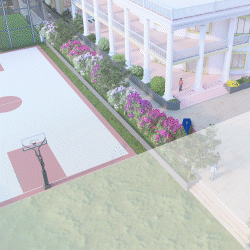The scenario within the Congress General Committee
We use Google Cloud Translation Services. Google requires we provide the following disclaimer relating to use of this service:
This service may contain translations powered by Google. Google disclaims all warranties related to the translations, expressed or implied, including any warranties of accuracy, reliability, and any implied warranties of merchantability, fitness for a particular purpose, and noninfringement.


The Congress Party Constitution envisages a general committee every year except the year of the convention. However, since the 8th Congress, it has been a tradition to organize the General Committee only once in the interval between the Congresses.



Although the law passed by the 14th Congress held in 2078 advanced the holding of the policy convention, the policy convention was pushed to show that the party's attention was drawn to the local and central elections after the convention. The Godavari Mahasamithi was decided by converting the policy convention itself into a Mahasamithi.
This article will focus on the history of the General Committee meeting in the Congress, its importance at present, how General Minister Gagan Thapa was able to deceive the party president Sher Bahadur Deuba in his agenda and the impact of this incident on the internal life of the Congress and national politics.
The proposal to be submitted to the General Committee is passed by discussion in the Party Central Working Committee. For that, on February 3rd and 4th, the General Minister, Deputy Chairman and others submitted a proposal to the Central Working Committee, and the Central Working Committee decided to pass it with general amendments/modifications. However, the matter of general amendment turned unusual when it reached the day of the General Committee meeting. General Minister Thapa wanted to submit the matter of not forming an alliance especially before the elections, but Chairman Deuba was of the opinion that the alliance should be decided only when the elections come as a strategic issue. President Deuba made a speech to the same effect in the opening session of the General Committee. Thapa refused to budge from his proposal in the office bearer's discussion, which was not resolved until the end of the opening session, instead he decided to take his proposal to the Central Working Committee for a voting process if necessary. That stance of Thapa became a decisive point when most of the officials held the opinion that voting on this issue would not send a good message. In this way, Deuba agreed to Thapa's proposal without much hesitation.
The opportunity to change the votes of central members who are called Deuba supporters was the only method of voting in the central working committee. This time, Thapa managed to convince the chairman of his vote without going to the polls through his stand to face the vote. Especially during the journey from Jhapa to Nawalpur under the 'Samudayama Congress Abhiyan', his confidence was boosted when he listened to the grassroots workers, well-wishers and people. It shook his inner being in an extraordinary way and he found his basic strength once again. In this way, he reached the point of giving 'check mate' to the party chairman until the end, saying that it is not necessary to gain a foothold in the matter of workers in the general committee. Since being elected as the Chief Minister, Thapa had not taken a stand on anything so seriously in the Central Working Committee meeting. When there was a difference of opinion with the chairman, he was forced to submit to the majority, even then he would write a dissenting opinion and accept the decision of the majority.
With the proposal of the General Committee, the era of 'innovation' of making pre-election alliances started by Deuba as the chairman is coming to an end. This is in a way a defeat for the policy of the party president and also a victory for General Minister Thapa who spoke with the voice of the common workers, Karun Krandan and Chitkar with determination. This will break the policy of President Deuba, who is successful in embodying a very power-centered thinking, ignoring the feelings of the majority of workers.
In the local elections of 2074, Prachanda's daughter Renu Dahal was forced to vote for the Maoist symbol hammer and sickle by leaving the tree symbol blank in the local elections. The attraction of new voters towards the Congress was reduced when the election symbol of the Congress was a tree but they were deprived of voting for the tree for the first time. In the year 2074, the proportional vote obtained by directly winning 23 seats, went down to 27 percent when it reached 57 seats in 2079. General Minister Thapa prepared an organizational proposal by absorbing the trend of the common people seen in the local, state and union level elections held in 2079. Besides, Thapa was repeatedly saying that the Congress should stand on its own strength and strength amid the party's failure in the 2074 election. He wanted to rein in the party at the appropriate opportunity. For that, there could be no other greater opportunity than the General Committee.
As the General Minister, he was in charge of the expansion of the party organization, and he wanted to keep the General Committee as result-oriented as to how the people and workers are looking at the Congress. On the one hand, the old active members did not renew their active membership promptly and on the other hand, those seeking to recruit new active members seemed to be confused about the possible electoral strategy of the Congress. The only way to solve that problem was to ensure the natural right of voters who are members of Congress to vote on their own party's election symbol. The inherent contradiction within the Congress to take a decision of the same nature should be considered interesting when the current ruling coalition partners, the Maoists and the United Socialists, have issued instructions to their workers to prepare in such a way that they will be able to fight the upcoming elections alone. While the office bearers meeting was going on, the news that the party chairman Deuba had convinced the alliance's partner leaders that the policy to be passed by the general committee would not be a hindrance to his imminent sixth ascension to power. Even though many issues related to people's livelihood have been mentioned in four reports in the Party General Committee, it could be understood that many people focused their attention on the alliance.
Broadly speaking, the issue of who to form alliances with and when is strategic. Congress has come to its present state because the Chairman Deuba could not explain this issue to the workers and well-wishers. Deuba, who could not defend his policy theoretically and practically, could not explain it to the workers. Thapa, who had been holding different opinions since 2074 due to his incompetence, succeeded in capturing the spirit of the party when he arrived in 2080. He has become the leader of Deuba's anti-policy camp. In the election of 2079, the coalition made in the name of preserving the constitution, the Maoist vote could not be held until the results were announced.
This decision of the Congress General Committee has theoretically opened the door of new polarization. With parties contesting elections on their strengths and paving the way for alliances only after elections, there is sure to be pressure on parties to do politics of morality. It is clearly indicated that the pre-election alliances are eroding the boundaries of the constitution as the head and deputy head of the municipal government were elected in 2079 compared to 2074 and both men were elected to the posts of president and vice president.
General Minister Thapa and Bishwa Prakash Sharma, who want to run the Congress according to the law, have cleverly not submitted the proposal for amendment of the law to this general committee. In their report, they have put the issue of what to do in the revision of the constitution of the general committee to be held next year, and they have asked for the opinion of the workers. Changing the traditional ticket distribution style and selecting party candidates from primaries will prove to be a new leap in the way parties do politics. Many such proposals have been passed by the General Committee. Before the 15th Congress, it is decided to have one more general committee on constitutional amendment. Thus, this general committee has basically become a policy convention. Since 2062/63, Congress has not been able to hold any convention within four years. The convention target schedule included in the schedule of Thapa's organizational proposal has also given a shock to those who want to extend the time of the 2082 convention. In this way, not only in national politics, but also within the party, the way of new polarization has been opened. It is certain that a new era will begin with the disintegration of factions and sub-factions focused on personal gain rather than theoretical ones that have existed for a long time in the Congress. According to the provisions of the party chairman Deuba's law, it is certain that he will not be the chairman again, so that action will also be strengthened.
In the history of Congress, there was never such a difference of opinion/opinion between the President and the General Minister on any issue. Also, until the 11th Congress, it was the President who selected the General Minister in the Congress. Thapa is not the only leader who will be elected against the line of the President during the 12th to 14th session under the arrangement that the General Minister is elected by the General Assembly together with the President. Interestingly, BP's son Shashank Koirala, who was elected as General Minister from a different group than Chairman Deuba in the 13th Congress, did not hold a different opinion throughout that term so that he was never noticed. From the day he was elected as the Chief Minister, Thapa had been strongly resisting the fact that the President would not be obstructed in following the law, but that the law would be broken. He also had different views on national politics and occasional amendments to the party constitution. Chairman Deuba has not only sent a positive message by easily accepting Thapa's proposal in the General Committee, he has indirectly admitted that Thapa will be the party leader after him. It is also a sign that the conflict between those who want to continue the traditional politics in the Congress and those who want to follow a new political tradition will be resolved easily.
Published in Kantipur on February 26, 2078, under the title 'Congress's confidence after MCC', the same writer mentioned that 'Just as Ganeshman alone could represent the mandate of the 2046 Jan Andolan, Gagan Thapa alone can represent the voice of change within the Congress'. This has been confirmed by the General Committee meeting. Thapa's report is original and interesting, whereas earlier the reports of the General Minister submitted to the General Committees were ritualistic. It has accurately portrayed the current state of the country, the mood of workers, well-wishers and people, and has talked about the necessary amendments to the constitution. Two years before the convention, Thapa's rock-solid stance on the alliance and decisive intervention within the party have sent a message that the scope of his vote's acceptance has expanded even more.
 प्रकाशित : फाल्गुन १४, २०८० ०७:२०
प्रकाशित : फाल्गुन १४, २०८० ०७:२०

 २३.१२°C काठमाडौं
२३.१२°C काठमाडौं


















